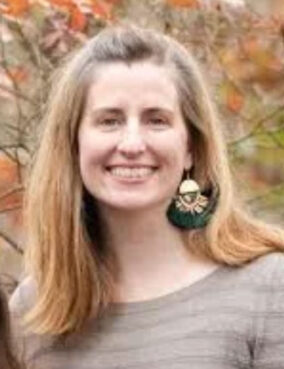(RNS) — We have been living through unbelievable days in Charlotte, North Carolina. I have seen masked, armed Border Patrol agents patrolling the streets, violently snatching my neighbors and taking them to undisclosed locations. That doesn’t happen in America — except that it is currently happening. I can’t believe my own eyes.
For years, prominent political voices have been warning us about the danger of government overreach, and I dismissed it as hysteria. And now, federal agents are grabbing civilians in blatant violation of the First, Fourth and Fifth amendments, but the very voices who have been sounding the alarm are celebrating. I can’t believe my own ears.
Operation “Charlotte’s Web,” a cynical degradation of a children’s book all about love and belonging, may have ended, but the fear its agents left in their wake will long remain. And while the Border Patrol agents may have moved on to terrorize cities in America’s South, we know Immigration and Customs Enforcement agents remain and deportations are only set to increase with the new year’s expanded budget.
We continue to navigate uncertainty. We hear from our mayor and sheriff that the operation has concluded. Then we read a report from the Department of Homeland Security saying that the operation is ongoing and far from over. The rate of detentions slows but does not stop. Are people being taken by ICE or Customs and Border Protection? Does it matter? Should we continue to patrol? Is it a trap?
My friends, who are American citizens, asked me to hold their children’s birth certificates in case any of them get taken. My church is now worshipping with locked doors and a posted lookout because on Nov. 15, the first day of the invasion, agents went through the gates of a neighboring church and onto church grounds, where they detained a man who had been gardening, as others fled into the woods.
And still, daily life continues. We practice special Christmas music, urge people to sign up for the potluck and make hospital visits. We also schedule our safety patrol shifts outside the elementary schools, wait with cheerful signs to open doors in car drop-off lines half as long as normal, and arrange food deliveries to families who have to shelter in place indefinitely. How is it that everything has changed and nothing has changed at the same time?
I heard Mecklenburg County GOP chairman Kyle Kirby give a radio interview during the operation in which he said that agents were conducting targeted raids and that they were polite and respectful. He said the only chaos being caused was by outside agitators. He said people were refusing to comply with reasonable requests. He said American citizens and documented immigrants had nothing to fear. He said the majority of Charlotteans feel safer since the Border Patrol invasion.
None of these statements is true. The true outside agitators were the U.S. Border Patrol agents. These agents were patrolling our streets and targeting Hispanic and Latino people. Tackling teenagers and breaking car windows are not reasonable requests — but it is reasonable for people to run for their lives when they are being swarmed by masked men with guns and zip ties. It is not yet illegal to scream and blow a whistle and record when one sees a neighbor being abducted.
If agents are acting legally, why are they wearing masks? If agents are making reasonable requests, why are they opposed to these encounters being filmed for documentation?
It’s not the Charlotteans with whistles who were disturbing the peace; it was the heavily armed federal agents snatching community members as they hung Christmas decorations, laid sod and sold food and flowers. You cannot increase respect for the rule of law by acting lawlessly. I understand why people want to believe Kyle Kirby. The lies are comforting. But that doesn’t make them true.
And yet, not everything is horror. I also see and hear beautiful and true things. People are rising up to be good neighbors to one another. Charlotteans who could have carried on with life as usual disrupted their schedules to stand guard on street corners so their targeted neighbors could safely travel to school and work and home. People were reaching out to those unable to leave home, offering to run errands, drive children to the doctor and deliver groceries. They filled church sanctuaries to learn from seasoned Latino community leaders from Siembra NC and Carolina Migrant Network. They gave — and continue to give — to emergency funds to cover lost wages and secure legal counsel for those detained. They made and folded zines that informed us of our rights.
In targeted cities around the country, we are discovering that whistles can turn back armed men. We are learning there is a force even greater than men with guns, and that is neighbors remembering we belong to one another.
I keep thinking about Moishe the Beadle. I met him as a teenager in the pages of Elie Wiesel’s haunting and prophetic memoir “Night.” Moishe was the beloved caretaker of the local synagogue and Wiesel’s kabbalah teacher. Until he was deported by the Hungarian police and detained by the Nazis. They forced him to dig his own grave and then they shot him. Miraculously, he escaped. Instead of fleeing to safety, he returned to warn the people of Sighet about the horrors awaiting them in the concentration camps. He went house by house, pleading with people to run for their lives. No one believed him, so no one escaped.
When I read the book as a child, I could not understand. Why didn’t they listen? Why couldn’t he make them understand the danger they were facing? Now I understand a little more.
Moishe the Beadle gave his young pupil Weisel a faith, not of secret answers, but full of sacred questions. And it is holy questions that are guiding me in the Spirit in these days. Who are the outsiders in Charlotte? My Hispanic and Latino neighbors or the federal agents? What will make peace here, armed violence and state-sanctioned lawlessness or neighbors keeping watch over one another? Who decides who is protected and who is cast out? Whose teaching forms my understanding of what it means to be a good neighbor?

The Rev. Kate Murphy. Courtesy of The Grove Presbyterian Church
I have a morning ritual and the last sentence is the same every day. “Spirit, help me to love the lost, proclaiming Christ in all I do and say.” I believe the federal agents roaming America’s streets to kidnap our neighbors are spiritually lost. And though it looks different in my life, I am lost as well. But the Lord seeks me out. He brings me back home to truth and love. Loving the lost and bearing witness to Christ looks like standing on the corner in my stole, ready to warn my neighbors when they are in danger. It looks like my unequivocal condemnation of this racialized terror.
Sometimes the witness of the cross sounds like a whistle.
(The Rev. Kate Murphy is pastor of The Grove Presbyterian Church, a multiethnic, multicultural, multigenerational mission-driven congregation in East Charlotte, North Carolina. Her first book, “Lost Hidden Small,” was published by Broadleaf Press in October 2025.)



